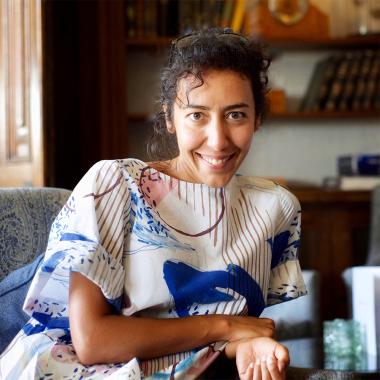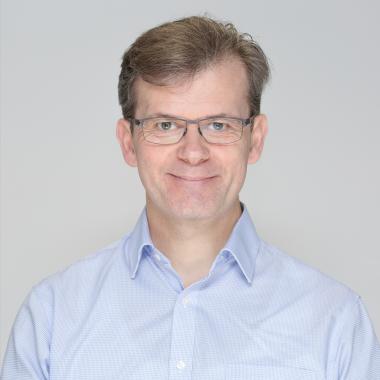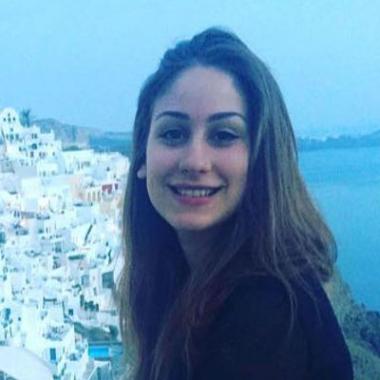Course Overview
Attendance
* Price for Foundation year only
Course summary
Our degree courses with foundation year offer the opportunity to prepare you for advanced study before you progress onto a full honours degree at the University of Westminster. Whether you do not feel ready for degree-level study, don’t have the right qualifications, want to change your subject specialism or return to study after an absence from education, we aim to encourage a broad range of students to undertake our foundation year in order to progress onto their full honours degree with us.
The foundation year is designed to give you the opportunity to explore new ideas, opening up new perspectives on the key debates within your chosen field. Core modules accelerate your academic and professional development, bringing together like-minded students to think about the ‘big ideas’ within your discipline. You will also take modules from areas closely related to your chosen field, giving you the chance to develop a cross-disciplinary perspective on your course.
On successful completion of the foundation year, you will be able to move on to study for the International Relations and Development BA Honours degree over a further three years study.
Our International Relations and Development BA focuses on international development and the challenges associated with political and economic change in the international system.
The course considers the relationships between the Global North and South, examining how colonialism and capitalism have shaped our contemporary world. You'll explore global poverty and inequality and the impact of globalisation on different parts of the world, including Africa, Asia, the Middle East, China, India, Central Asia and Latin America.
The course provides a theoretical framework for understanding the international distribution of power at the global, regional and national levels, and we aim to enthuse and inspire you by building close links to government bodies and the policy world. A degree in International Relations and Development will prepare you for professional life in a range of sectors, including the Civil Service, media, public policy, NGOs, teaching and further research.
On this course, you'll have the opportunity to spend one optional year abroad, where you can complete a work or volunteering placement, undertake a year of study at one of our partner universities, or a combination of the two. The year abroad provides a valuable opportunity to boost employability, enhance language skills and build international experience, something which is highly valued by employers. It also encourages intercultural awareness and capability, qualities of self-reliance and other skills which will further enable you to become a mobile and transnational citizen.
The course is based in the School of Social Sciences, which brings together Criminology, Politics and International Relations, Psychology and Sociology. What binds us together is our shared commitment to making education a transformative experience for our students, to conducting research that makes a difference to the social world, and to enhancing the diversity of ideas and identities within and beyond the University.
We are in the centre of one of the world’s greatest cities and we use this vibrant, multicultural setting to ensure that our students discover innovative solutions to the problems facing our world. We are ranked top 20 in the world for the percentage of international students, Times Higher Education World University rankings 2021.
As a School, we also host the world-renowned Centre for the Study of Democracy. The Centre undertakes research across a range of critical challenges to the theory and practice of politics, international relations, sociology and criminology. We have an innovative initiative called the Democratic Education Network, which facilitates dialogue and the sharing of knowledge between our students, international universities and diasporic communities in London.
Top reasons to study with us
- A global environment – we are one of the most diverse universities in the country, and London is a vibrant, global city
- Supportive staff and student satisfaction – our student satisfaction rate is over 90%, and we do everything we can to ensure our students get the most from studying with us. (Source: Discover Uni – site accessed in December 2020)
- International experience – the course includes a year studying, working or volunteering abroad
- Development theories and practice in a real-world environment – overseas field trips give students real experience of global development
Course structure
Teaching and learning includes small group work, problem-based tutorials, review sessions, workshops, symposia, debates, Q&A sessions, document analysis sessions, and structured role-plays.
Assessment methods are wide-ranging on this course and include essays, exams, policy reports, project work, individual and group presentations, blogs, posters, and debates.
Students on this course have the opportunity to spend one optional year abroad.
The following subjects are indicative of what you will study on this course.
Subjects of study include:
- Critical Thinking for Academic and Professional Development
- History, Memory and Belonging
- Imagining Global Society and Politics
- Intercultural Communication
- Introduction to Academic Practice
- Rights and the Law
There are no optional or elective modules offered at Level 3, as the focus is on the development of key academic skills through a broad understanding of social sciences and humanities.
Credit Level 3
Our teaching programme is structured to support your transition to higher education, with our first year designed to immerse you in the key concepts, issues and major themes in international relations and development.
Subjects of study include:
- British Politics
- Critical Perspectives on Global Politics
- Democracy in Crisis
- Dilemmas of International Development
- Global Governance and Development
- Introduction to International Relations
- Political Ideas in Action
- The Politics of Migration
Credit Level 4
In the second year, you will be encouraged to think about the operation of the global economic system through an in-depth overview of international political economy. You will explore the contemporary challenges to developing states in the context of the world market, and explore the origins of capitalism through detailed case studies in different regional settings. More significantly, you will be encouraged to think about the impact of global economic forces on individual states, territories and regions in world politics.
Subjects of study include:
- Democracy and Development in Asia and Africa
- Geopolitics
- Global Security
- Governance in Europe
- International Political Economy
- Learning in an International Environment
- Middle East Politics
- Political Research and Practice
- Politics and International Relations Internship
- Power and the State
- Rethinking Development
- The Politics of Killing
- Theorising Politics and International Relations
Credit Level 5
Students on this course have the opportunity to either spend one optional year abroad or one year gaining professional experience.
If you go abroad, you may complete a work or volunteering placement, both of which provide valuable opportunities to boost your employability and ground your studies in an experiential setting. You may also undertake a study placement at one of our university partners. You can also undertake a combination of both study and work.
Find out more about the costs involved in taking a study abroad or placement year.
If you choose the professional experience option, you will be able to develop your understanding of the qualities and skills needed in high quality employment and gain a critical awareness of the career pathways for which the degree prepares you.
In your third year, you will examine the regional constellations of development and how different regions of the world have been affected by developmental politics.
Subjects of study include:
- American Power in a Multipolar World
- Contested Sovereignty: Territory, Borders and Resistance
- Digital Politics
- Dissertation
- Ethics, Morality and World Order(s)
- Equality, Justice, Citizenship
- Foreign Policy and Diplomacy
- Gender and Politics
- Humanitarian Intervention and International Relations
- Learning from NGOs in an International Context
- Policy and Practice
- Politics and Development in the Middle East
- Postcolonial Politics and International Relations
- Radical Democracy
- Security and the Surveillance State
- Special Topic in Politics and International Relations
- The Politics of Protest: Social and Political Movements Today
Credit Level 6
For more details on course structure, modules, teaching and assessment Download the programme specification (PDF).
To request an accessible version please email [email protected]
Get your copy of the University of Westminster prospectus and browse the range of courses on offer.
Contact us for general course enquiries:
+44 (0)20 7911 5000 EXT 65511
(Mon–Fri, 10am–4pm BST)
Live chat with us
(Mon–Fri, 10am–4pm BST)
Open days
Join us at an open day online or on campus. Get a feel for student life at the University of Westminster and talk to course leaders and our support teams.
Can't attend? See more open events
More ways to meet us
Careers
Successful alumni
Recent graduates of this course have found employment in companies and organisations including the Greater London Authority, the Home Office and the Young European Federalist.
International experience
You'll have the opportunity to spend a year abroad working or volunteering, developing key international experience and boosting your employability.
Employers around the world
The University’s Careers and Employability Service has built up a network of over 3,000 employers around the world, helping all our students explore and connect with exciting opportunities and careers.
Career development
Graduates in politics and international relations are adaptable and able to respond to new challenges faced within economic, social and global political life.
Students on this course have the option to participate in a year working or volunteering abroad, both of which provide valuable opportunities to boost your employability and ground your studies in an experiential setting.
Graduates with international experience are particularly valued by employers, and a one-year period of residence abroad enhances your language skills and contributes experiences and contacts that can be valuable in your career.
Internship opportunities
The University of Westminster is part of an ongoing collaboration with the United Nations Migration Agency, the International Organization for Migration (IOM).
As part of this, Politics and International Relations students in their second or third year of undergraduate study can apply for 3-9 month internship opportunities at IOM offices around the world, including in Geneva, Vienna, Dhakka and London.
The internships, which are open to students completing their second year of studies and beyond, focus on a host of topics from migration governance to mission support, policy and liaison, and information management.
Job roles
This course prepares students for roles including:
- Advocacy
- Network or communication officer
- Policy researcher
- Project manager or coordinator
- Research or policy officer or adviser
Graduate employers
Recent graduates of this course have found employment in companies and organisations including:
- BronzeGate
- Gender Action for Peace and Security
- Greater London Authority
- Home Office
- The Takshashila Institution
- Young European Federalist
International Opportunities
Many of our courses offer international study and work experiences, and the University provides other global opportunities that all students can apply for – so whatever you're studying, you'll have the chance to go abroad.
Opportunities could include:
- Taking part in semester or year-long exchanges at institutions around the world
- Attending an international summer school or field trip
- Developing your CV through volunteering or work placements abroad
International experience broadens horizons, boosts self-confidence, and improves global understanding, alongside being fantastic for your career.
Find out more about our international opportunities, including funding options and where you can go.
Course Leaders

Understanding the political economy context within which international development takes place is vital to our ability to contribute to fair, inclusive and sustainable economic development across the globe."
Dr Sahar Taghdisi Rad
Senior Lecturer
Sahar Taghdisi Rad is a development economist focusing on the political economy of international development, with particular interest in the Middle East and North Africa. She holds a PhD in development economics from SOAS. Sahar’s areas of research and work include the political economy of conflict, international development assistance, labour markets and employment policies, social protection and inequality. She has previously taught political economy and international development at SOAS and King's College London, and has also worked as a senior economist at the United Nations, the International Labour Organisation, and the African Development Bank.
More about meSee full profile of Dr Sahar Taghdisi RadDr Frands Pedersen
Senior Lecturer in International Relations
Dr Frands Pedersen is Senior Lecturer and Course Leader for the Foundation Courses in Humanities, Law and Social Sciences and the Diplomacy and Global Politics MA. He has Master's degrees in Political Science (Aarhus, Denmark) and Diplomacy (Lancaster). He received his PhD for his thesis on Para-diplomacy, which is an ongoing research interest alongside Public Diplomacy and Digital, Data and AI Diplomacy. He convenes the Teaching Excellence Learning Community at Westminster and the Political Studies Association’s Nordic Politics Specialist Group. He is also co-founder of the Serious Games@Westminster group.
Dr Pedersen has led Diplomacy, International Relations and European Union related modules at the Universities of Surrey, Central Lancashire and Westminster since 1999. In 2016, he was awarded a National Teaching Fellowship in recognition of his contribution to innovation in learning and teaching. He is passionate about active and immersive learning and has conducted extensive research on simulations and games, run projects and created shared resources to facilitate active learning. Dr Pedersen's current research focuses on Nordic responses to the Covid19 crisis, aspects of digital diplomacy and city diplomacy, and pedagogical research on compassion in higher education.
More about meSee full profile of Dr Frands Pedersen
The safe and compassionate learning environment we have here encourages students to explore new ideas, grow their subject-knowledge, and expand their skills and build confidence.
Course Team
Some of the other experts who will teach you include:
- Professor Dibyesh Anand - DVC Global Engagement & Employability
- Dr Greg Aasen - Staff
- Dr Ipshita Basu - Reader in Global Development and Politics
- Dr Elisabetta Brighi - Lecturer in International Relations
- Dr Patrick Burke - Senior Lecturer
- Professor David Chandler - Professor
- Dr Catherine Charrett - Senior Lecturer
- Dr Daniel Conway - Reader in Politics and International Relations
- Dr Bridget Cotter - Lecturer
- Dr Hannah Cross - Senior Lecturer
- Professor Roland Dannreuther - Professor
- Dr Matthew Fluck - Senior Lecturer
- Dr Magdalena Frennhoff Larsen - Reader
- Dr Dan Greenwood - Reader in Political Economy and Public Policy
- Dr Aidan Hehir - Reader in International Relations
- Professor Nitasha Kaul - Professor of Politics, International Relations, and Critical Interdisciplinary Studies
- Rob Macmaster - Principal Lecturer
- Dr Farhang Morady - Reader
- Dr Wojciech Ostrowski - Senior Lecturer
- Dr Frands Pedersen - Senior Lecturer in International Relations
- Professor Sam Raphael - Professor
- Professor Graham Smith - Professor of Politics
- Dr Sahar Taghdisi Rad - Senior Lecturer
- Dr Ali Tajvidi - Senior Lecturer
- Dr Paulina Tambakaki - Senior Lecturer
Why study this course?
Innovative research inspires our teaching
The research undertaken by our world-renowned Centre for the Study of Democracy means the department is at the forefront of global political understanding.
Central London location
Our location in a global political hub provides a perfect platform for exploring the rest of the world and we regularly invite leading intellectuals, policy-makers, officials and political activists to speak to our students.
Student satisfaction
Our supportive environment and expert teaching staff keep our student satisfaction at a high level – 92% of students agreed that they're satisfied with the quality of the course.
Source: Discover Uni (Accessed December 2020)
Entry Requirements
- A Levels – DEE (56 UCAS Tariff points)
- T levels – 56 UCAS Tariff points
- International Baccalaureate – 56 UCAS Tariff points from all components of the Diploma Programme. International Baccalaureate Career-related Programme will be considered on a case-by-case basis
- BTEC Extended Diploma – MPP
- BTEC Diploma – MM
- Access – 56 UCAS Tariff points from the Access course
In addition to one of the above, you should have:
- GCSE English Language grade 4/C – IB grade 4 Higher level, GCSE Maths grade 4/C – IB grade 4
If your first language is not English, you will need an IELTS of 6.0 overall, with 5.5 in each component.
We also welcome applications from students who are taking a combination of qualifications listed above. For further information, please contact Course Enquiries.
View more information about our entry requirements and the application process
- International Baccalaureate – 56 UCAS Tariff points from all components of the Diploma Programme. International Baccalaureate Career-related Programme will be considered on a case-by-case basis. You can refer to the UCAS calculator to determine your point score
- We accept a wide range of international high school level qualifications. Please see information on Country-specific entry requirements
- We work in partnership with Kaplan International College London who provide International Foundation Certificate courses for students who don’t meet our entry requirements. Upon successful completion, you can progress to your chosen degree at the University of Westminster. Find out about a range of university preparation courses that are accepted for entry.
English language requirements
- If your first language is not English, you should have an IELTS score of 6.0 overall, with a score of 5.5 in each component. Please note we accept a wide range of English language qualifications and assessments. Find out more at English language requirements.
- If you don't meet the English language requirements yet, then we offer online and on campus pre-sessional English programmes to help develop your English language skills to the required level before you start your course. Find out more about our pre-sessional English programmes.
More information
- A Levels – DEE (56 UCAS Tariff points)
- T levels – 56 UCAS Tariff points
- International Baccalaureate – 56 UCAS Tariff points from all components of the Diploma Programme. International Baccalaureate Career-related Programme will be considered on a case-by-case basis
- BTEC Extended Diploma – MPP
- BTEC Diploma – MM
- Access – 56 UCAS Tariff points from the Access course
In addition to one of the above, you should have:
- GCSE English Language grade 4/C – IB grade 4 Higher level, GCSE Maths grade 4/C – IB grade 4
If your first language is not English, you will need an IELTS of 6.0 overall, with 5.5 in each component.
We also welcome applications from students who are taking a combination of qualifications listed above. For further information, please contact Course Enquiries.
View more information about our entry requirements and the application process
- International Baccalaureate – 56 UCAS Tariff points from all components of the Diploma Programme. International Baccalaureate Career-related Programme will be considered on a case-by-case basis. You can refer to the UCAS calculator to determine your point score
- We accept a wide range of international high school level qualifications. Please see information on Country-specific entry requirements
- We work in partnership with Kaplan International College London who provide International Foundation Certificate courses for students who don’t meet our entry requirements. Upon successful completion, you can progress to your chosen degree at the University of Westminster. Find out about a range of university preparation courses that are accepted for entry.
English language requirements
- If your first language is not English, you should have an IELTS score of 6.0 overall, with a score of 5.5 in each component. Please note we accept a wide range of English language qualifications and assessments. Find out more at English language requirements.
- If you don't meet the English language requirements yet, then we offer online and on campus pre-sessional English programmes to help develop your English language skills to the required level before you start your course. Find out more about our pre-sessional English programmes.
More information
Democratic Education Network
The Democratic Education Network (DEN) is an academic, student-led organisation, part of the Department of Politics and International Relations.
It promotes social action and student engagement through local and international projects that solidify and enhance your experiences. It also provides numerous opportunities to transform your ideas into reality and make a real difference.
Check out our blog 'Inside Westminster' and visit the DEN website.
What our students say

Charlotte O'Brien
International Relations and Development
The staff at Westminster are incredibly approachable, friendly and accommodating, and choosing to study this course turned out to be one of the best decisions of my life.

Keletso Kesupile
International Relations and Development
Though I could give you an endless list of why I enjoy my course so much, one thing that sticks out the most is the teachers. The academic staff create a friendly and comfortable environment for all the students. They not only push us to think outside the box and consider new things, but encourage us to see the uniqueness in all of us and celebrate our diversity.

Safa Nafi
International Relations and Development
The course has not only given me a broader understanding of global issues, but more importantly, it has given me the skills to think critically. Every module on the course has ensured that we, as students, are given a platform to learn about all global perspectives, not just dominant ideologies.
Studying with us
Learn new skills
Learn a new language
From Arabic to Spanish, you can learn a new language alongside your degree with our Polylang programme.
Develop your entrepreneurial skills
Our award-winning Westminster Enterprise Network offers industry networking events, workshops, one-to-one business advice and support for your startup projects.
Gain extra qualifications
We provide access to free online courses in Adobe and Microsoft Office applications, as well as thousands of specialist courses on LinkedIn Learning.
Fees and Funding
UK tuition fee: £5,760 (Price for Foundation year only)
The course fee applies to the Foundation year of your degree programme. When you progress from the Foundation year (level 3) to the degree (level 4), the fees will increase to match our standard degree-level fees for level 4 onwards.
Please note that if you defer your place, the first year’s tuition fees will be those of the academic year in which you enrol, which may be higher than the fee shown for this year.
Fees are subject to UK Government Parliamentary procedure.
Find out how we set our tuition fees.
Funding
As well as tuition fee loans, there is a range of funding available to help you fund your studies.
Find out about undergraduate student funding options.
Scholarships
The University is dedicated to supporting ambitious and outstanding students and we offer a variety of scholarships to eligible undergraduate students, which cover all or part of your tuition fees.
Find out if you qualify for one of our scholarships.
Additional costs
See what you may need to pay for separately and what your tuition fees cover.
International tuition fee: £17,000 (Price for Foundation year only)
When you have enrolled with us, your annual tuition fees will remain the same throughout your studies with us. We do not increase International tuition fees.
Please note that if you defer your place, the first year’s tuition fees will be those of the academic year in which you enrol, which may be higher than the fee shown for this year.
Find out how we set our tuition fees.
EU Qualifications Welcome Award Scheme
If you are an international student accepted on an undergraduate programme starting in September 2024 or September 2025 at level 3 (Foundation) or level 4 (first year) on the basis of an eligible EU qualification only, you will be awarded a tuition fee reduction which will align your fee more closely to the one for UK students. For more information, see the EU Qualifications Welcome Award Scheme.
International student funding
Find out about funding for international students.
Additional costs
See what you may need to pay for separately and what your tuition fees cover.
UK tuition fee: £5,760 (Price for Foundation year only)
The course fee applies to the Foundation year of your degree programme. When you progress from the Foundation year (level 3) to the degree (level 4), the fees will increase to match our standard degree-level fees for level 4 onwards.
Please note that if you defer your place, the first year’s tuition fees will be those of the academic year in which you enrol, which may be higher than the fee shown for this year.
Fees are subject to UK Government Parliamentary procedure.
Find out how we set our tuition fees.
Funding
As well as tuition fee loans, there is a range of funding available to help you fund your studies.
Find out about undergraduate student funding options.
Scholarships
The University is dedicated to supporting ambitious and outstanding students and we offer a variety of scholarships to eligible undergraduate students, which cover all or part of your tuition fees.
Find out if you qualify for one of our scholarships.
Additional costs
See what you may need to pay for separately and what your tuition fees cover.
International tuition fee: £17,000 (Price for Foundation year only)
When you have enrolled with us, your annual tuition fees will remain the same throughout your studies with us. We do not increase International tuition fees.
Please note that if you defer your place, the first year’s tuition fees will be those of the academic year in which you enrol, which may be higher than the fee shown for this year.
Find out how we set our tuition fees.
EU Qualifications Welcome Award Scheme
If you are an international student accepted on an undergraduate programme starting in September 2024 or September 2025 at level 3 (Foundation) or level 4 (first year) on the basis of an eligible EU qualification only, you will be awarded a tuition fee reduction which will align your fee more closely to the one for UK students. For more information, see the EU Qualifications Welcome Award Scheme.
International student funding
Find out about funding for international students.
Additional costs
See what you may need to pay for separately and what your tuition fees cover.
Teaching and Assessment
Below you will find how learning time and assessment types are distributed on this course. The graphs below give an indication of what you can expect through approximate percentages, taken either from the experience of previous cohorts, or based on the standard module diet where historic course data is unavailable. Changes to the division of learning time and assessment may be made in response to feedback and in accordance with our terms and conditions.
How you'll be taught
Teaching methods across all our undergraduate courses focus on active student learning through lectures, seminars, workshops, problem-based and blended learning, and where appropriate practical application. Learning typically falls into three broad categories:
- Scheduled hours: examples include lectures, seminars, practical classes, workshops, supervised time in a studio
- Placement: placement hours normally include placement opportunities, but may also include live projects or virtual activity involving employers
- Independent study: non-scheduled time in which students are expected to study independently. This may include preparation for scheduled sessions, follow-up work, wider reading or practice, completion of assessment tasks, or revision
How you'll be assessed
Our undergraduate courses include a wide variety of assessments.
Assessments typically fall into three broad categories:
- Practical: examples include presentations, videos, podcasts, lab work, creating artefacts
- Written exams: end of semester exams
- Coursework: examples include essays, reports, in-class tests, portfolios, dissertation
Data from the academic year 2024/25
Supporting you
Our Student Hub is where you’ll find out about the services and support we offer, helping you get the best out of your time with us.
- Study support – workshops, 1-2-1 support and online resources to help improve your academic and research skills
- Personal tutors – support you in fulfilling your academic and personal potential
- Student advice team – provide specialist advice on a range of issues including funding, benefits and visas
- Extra-curricular activities – volunteering opportunities, sports and fitness activities, student events and more
Course location
Our Regent Campus is comprised of two sites, situated on and around Regent Street – one of the most famous and vibrant streets in London.
Subjects including Criminology and Sociology, English and Creative Writing, History, Languages, Politics and International Relations and Visual Culture are based at 309 Regent Street, which includes recently refurbished social spaces, gym facilities and our Regent Street Cinema.
For more details, visit our locations page.
Contact us
Call our dedicated team on:
+44 (0)20 7911 5000 ext 65511
Opening hours (GMT): 10am–4pm Monday to Friday
Opening hours (GMT): 10am–4pm Monday to Friday
More information
Your Westminster
Book an open day. Order a prospectus. Sign up for newsletters.




